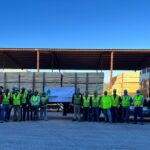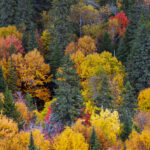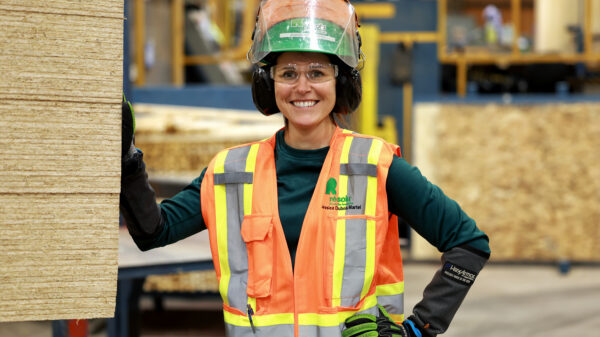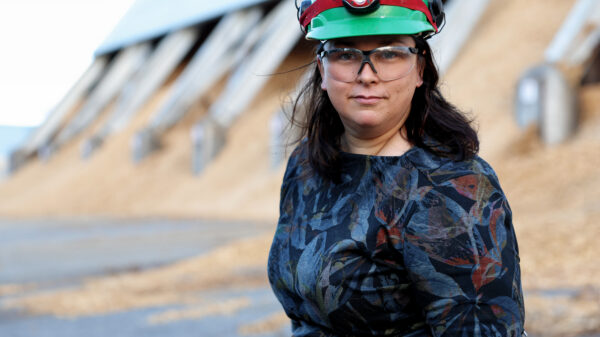Despite Canada’s internationally recognized leadership in forest management and conservation, certain anti-forestry activist groups continue to spread false and misleading information about the Canadian forest products sector and companies like Resolute. As a principled and ethical organization and a recognized global leader in sustainability, Resolute believes it has a duty to confront these distortions about our company and our stewardship of the forests, and that’s why we are setting the record straight here.
Here are the facts:
Resolute is a responsible steward of the forest.
The long-term future of our company and the boreal communities in which we operate depends on the responsible management of the natural resources in our care. 100% of the woodlands Resolute manages are certified to one or more internationally-recognized sustainable forest management standards.[1] Our foresters are experts in sustainable forest management and deeply knowledgeable about the many detailed criteria involved in certification. Our sustainable forest management practices are verified by independent parties on a regular basis. The results of their verifications help our company manage forests and monitor our fiber supply.
That’s why Resolute has been repeatedly recognized as a global leader in sustainability and a responsible forest steward.[2] In fact, for the last two years, we received a score of “A-“ for our forests disclosures to CDP, a globally recognized disclosure system enabling investors, companies, cities, states and regions to manage their environmental impacts. The score, which is the highest achieved in this category by any company in North America, places Resolute at the Leadership Level, and is reflective of our company’s environmental best practices and the actions we have taken to manage environmental risk and to implement monitoring programs.[3]
Resolute consults and collaborates.
Working in today’s forest products sector means building respectful dialogue with First Nations communities. We respect the significance of Canada’s land, water and forests to its Aboriginal peoples, and understand that these resources are critical to the prosperity of their communities. Resolute has established mutually beneficial partnerships with some 40 First Nations communities.[4] These partnerships are based on respect for treaties and traditional land rights and the shared value of increasing socio-economic prosperity and viability.
Public participation is a critical part of the harvest planning process, and we encourage the involvement of Aboriginal peoples as well as local stakeholders. More information on harvest planning can be found on the websites of the Ontario Ministry of Natural Resources and Forestry[5] and the Quebec Ministry of Forests, Wildlife and Parks.[6] Resolute conducts internal audits to help identify, define and track issues related to Aboriginal affairs.
Resolute is taking decisive action on climate change.
In 2011, Resolute committed to one of the most ambitious carbon reduction goals in the industry – a 65% reduction of greenhouse gas emissions over 2000 levels by 2015. We exceeded our goal and, as of the end of 2018, achieved an 81% reduction. We have also completely eliminated the use of coal on-site, and 74% of our energy needs come from renewable sources.[7] Despite activist claims, we are at the forefront of efforts to fight climate change.
We have also made significant investments in improving the environmental performance of our manufacturing processes, including the development of innovative products that optimize our use of fiber.[8] We also know that reducing waste is a key part of operating sustainably, and we invest in cutting-edge technologies to get the most out of every tree we harvest.
Sustainable forestry helps fight climate change.
The U.N. Intergovernmental Panel on Climate Change recognizes responsible forest management as a method to improve carbon capture.[9] In the last 25 years, Canada’s managed forests have been a net carbon sink, while unmanaged forests have largely been a source of emissions due to natural disturbances like fires, insects and disease.[10] Indeed, the federal government’s latest State of Canada’s Forests report shows that Canada’s managed forests continue to be a carbon sink, removing 20 million metric tons of CO2 from the atmosphere in 2016.[11]
Canada’s boreal forest is thriving.
Over the last 25 years, Canada’s forest area has been very stable.[12] The annual deforestation rate has consistently been less than 0.02% since 2010, and the rate has been declining for 25 years.[13] Less than 0.5% of the boreal forest is harvested each year, and the rate of damage caused by insects, fire and disease exceeds harvesting by a factor of almost 25.[14] And 100% of harvested areas in Canada are regenerated – it’s the law.[15] Canadians can be proud of our vast, thriving boreal forest.
Canada is a leader in sustainable forestry.
Canada’s forests are among the world’s best regulated and managed, thanks to world-class and internationally recognized forest management policies.[16] Canada also leads the world in sustainable forest management certification. About 10% of the world’s forests are certified, and 37% of the world’s certified forests are in Canada.[17] Avoiding forest products from Canada increases the risk of illegal logging and deforestation because demand for forest products would be filled by other countries where forest management standards are far less stringent.[18]
Resolute will continue to set the record straight.
For years, anti-forestry groups have promoted misleading accusations about our forestry practices, threatened our customers and harmed boreal communities. Thousands of stakeholders who live in and depend upon the boreal forest – from First Nations communities to union leaders to municipal officials – have urged activist organizations to halt their attacks on our responsible forestry practices, only to be ignored.
That’s why we have a responsibility to set the record straight. We owe this duty to all our stakeholders – especially our employees, our customers and the citizens of the communities where we live and work.
[1] https://www.resolutefp.com/Sustainability/Forestry_and_Fiber_Sourcing/Forest_Certification/
[2] https://www.resolutefp.com/Awards_and_Recognition/
[3] https://www.cdp.net/en/scores#446647786929955804cc9a3a08ef1eb4
[4] https://www.resolutefp.com/Sustainability/Community_Involvement/Collaborations_with_Aboriginal_Peoples/
[5] https://www.ontario.ca/page/forest-management-planning
[6] https://mffp.gouv.qc.ca/les-forets/amenagement-durable-forets/consultation-public-partenaires/
[7] https://www.resolutefp.com/Sustainability/Climate_Change_and_Energy/Green_Energy/
[8] https://www.resolutefp.com/Sustainability/Mill_Environmental_Performance/
[9] https://www.ipcc.ch/site/assets/uploads/2018/02/ar4-wg3-chapter9-1.pdf
[10] https://unfccc.int/documents/65715
[11] http://cfs.nrcan.gc.ca/pubwarehouse/pdfs/39336.pdf
[12] https://www.nrcan.gc.ca/forests/report/area/16397
[13] https://www.nrcan.gc.ca/forests/fire-insects-disturbances/deforestation/13419
[14] http://cfs.nrcan.gc.ca/pubwarehouse/pdfs/39336.pdf
[15] https://www.nrcan.gc.ca/forests/report/harvesting/16494
[16] https://www.nepcon.org/sites/default/files/library/2018-12/NEPCon-TIMBER-Canada-Risk-Assessment-EN-V1.1.pdf
[17] https://www.nrcan.gc.ca/forests/canada/certification/17474






